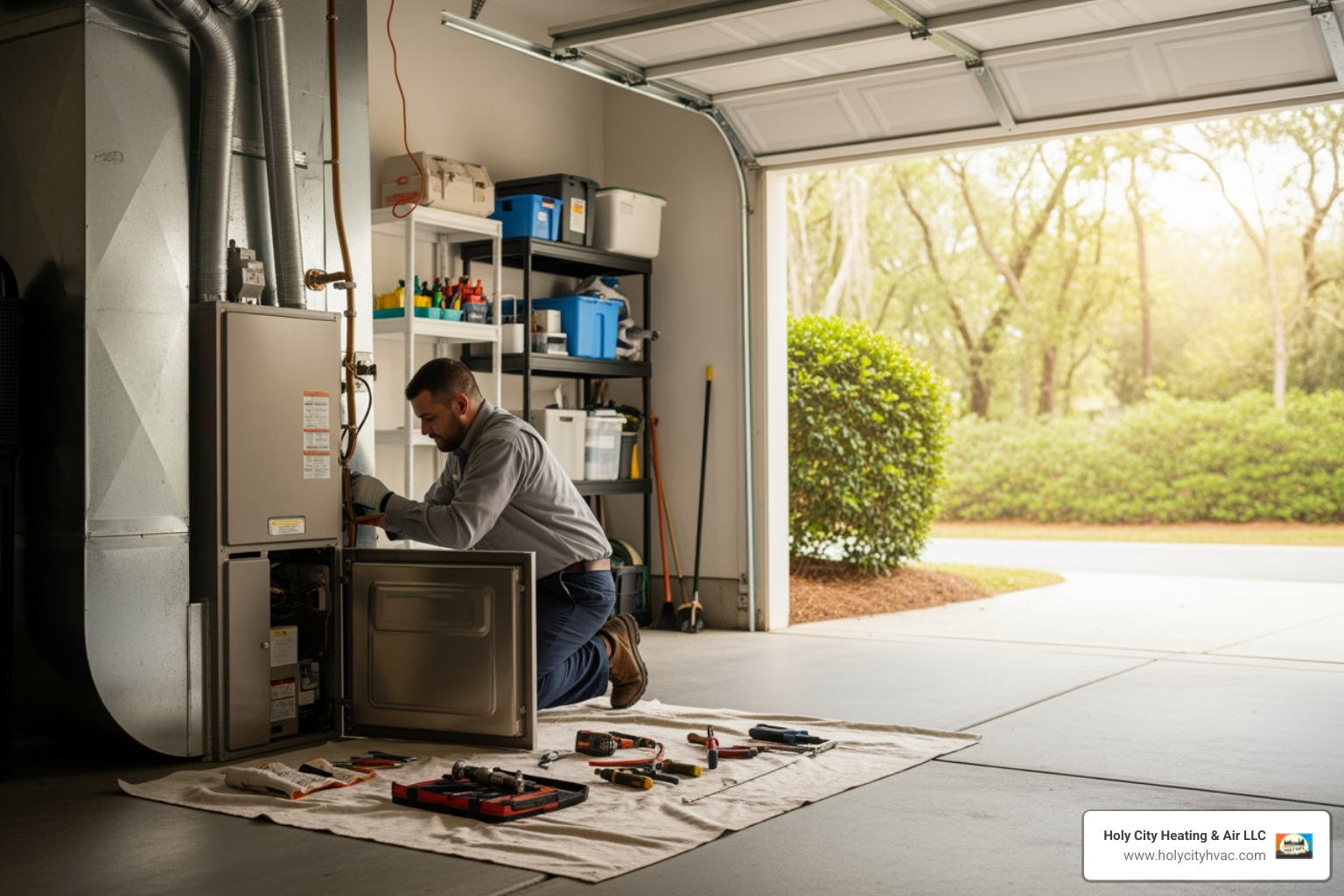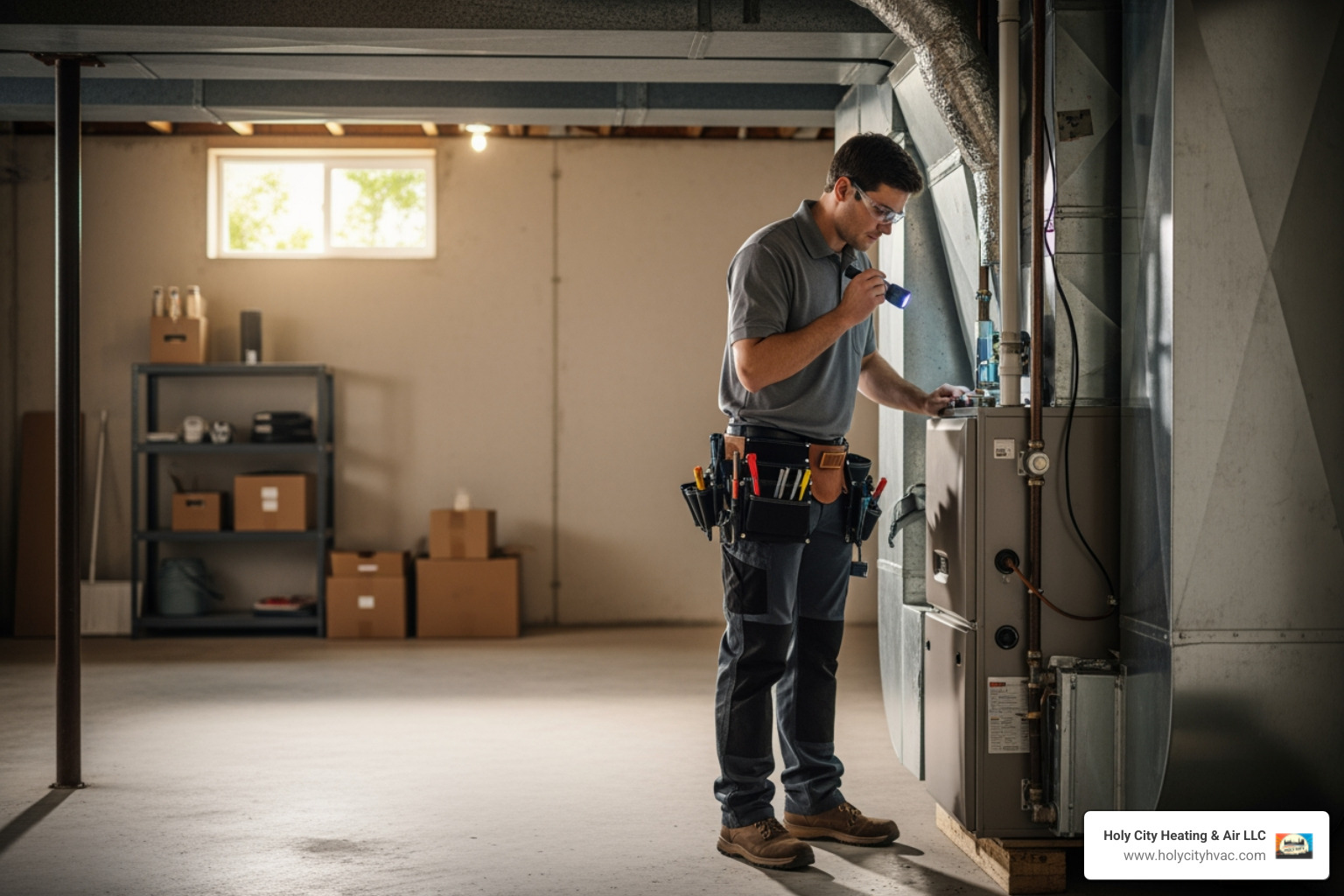
Proper gas piping installation and maintenance play a critical role in ensuring the safety and efficiency of any building. A well-installed gas piping system can prevent leaks, reduce the risk of accidents, and ensure that appliances function correctly. Without proper attention, even minor gas issues can lead to significant problems, including health hazards and property damage.
Gas piping systems require careful planning and professional expertise. Qualified technicians are essential for installing these systems correctly, ensuring that every connection and pipe meets safety standards. We understand that proper installation and regular maintenance can make a tremendous difference in system performance and longevity.
Beyond installation, regular maintenance is necessary to keep gas piping systems in good working order. Inspections and timely repairs can identify potential issues before they become severe problems. It's clear that whether we are installing a new system or maintaining an existing one, attention to detail and professional care are crucial for ensuring safety and efficiency.
Understanding Gas Piping Systems
Gas piping systems are crucial in both residential and commercial buildings. These systems transport natural gas or propane from the supply source to various appliances such as stoves, heaters, and water boilers. The main components of a gas piping system include pipes, fittings, valves, and regulators.
Pipes are usually made from durable materials like steel or copper, designed to withstand pressure and prevent leaks. Fittings connect the pipes together and ensure a secure, tight seal. Valves control the flow of gas, allowing us to shut off the supply in case of an emergency. Regulators maintain consistent pressure levels within the system, ensuring that appliances receive the right amount of gas for safe operation.
Understanding how these components work together helps us appreciate the importance of proper installation and maintenance. A well-designed gas piping system should be free of leaks, maintain adequate pressure, and deliver gas safely to all appliances. Any deviation from these standards can pose significant risks, including fire hazards and potential exposure to harmful gases.
Benefits of Proper Gas Piping Installation
Proper gas piping installation offers numerous benefits, not only for safety but also for the efficiency of your systems. Here are some key advantages:
- Safety: A correctly installed gas piping system minimizes the risk of leaks and accidents. Poor installation can result in gas leaks, which are dangerous and can pose severe health risks. Proper installation ensures that the system is secured and free from potential hazards.
- Efficiency: When gas piping is installed correctly, appliances perform better. Adequate gas flow and pressure allow appliances to function at their optimal levels, which enhances overall efficiency and performance. This efficiency can contribute to lower energy consumption and longer appliance life spans.
- Cost Savings: Investing in proper installation can save money in the long run. Avoiding leaks and ensuring efficient operation means fewer repairs and lower energy bills. Over time, the cost savings from reduced maintenance and energy consumption can be significant.
- Regulatory Compliance: Proper installation ensures that your gas piping system meets all local safety codes and regulations. Compliance with these standards is critical to avoid fines and ensure the legal operation of your system.
- Peace of Mind: Knowing that your gas piping system is installed correctly provides peace of mind. You can trust that your system is safe and efficient, reducing stress and concerns about potential issues.
By focusing on proper installation, we can reap these benefits and ensure a safe and efficient gas piping system for our buildings.
Common Issues with Gas Piping and How to Prevent Them
Gas piping systems, when not installed or maintained properly, can face several common issues. It's crucial to identify and address these problems to ensure a safe environment. Here are some typical issues and ways to prevent them:
- Leaks: Gas leaks are one of the most hazardous issues. Leaks can occur due to poor installation, corroded pipes, or damaged fittings. To prevent leaks, we should ensure all connections are tight and use high-quality materials that resist corrosion. Regular inspections can quickly identify and repair any potential leak points.
- Corrosion: Over time, gas pipes can corrode, especially if exposed to moisture. Corroded pipes can weaken and cause leaks. Using corrosion-resistant materials and properly sealing the pipes can help prevent this issue. Regularly checking for signs of rust or wear and addressing these issues promptly is essential.
- Blockages: Blockages can occur due to debris, dirt, or even the build-up of natural gas impurities. These blockages can disrupt the flow of gas, causing appliances to malfunction. We should keep the piping system clean and free from obstructions. Using filters can help prevent debris from entering the pipes.
- Improper Pressure: Incorrect pressure levels can result in inefficient gas flow, causing appliances to underperform or pose safety risks. Regulators are essential for maintaining proper gas pressure. Regularly checking and adjusting the pressure levels ensures the system operates efficiently.
By addressing these common issues and taking preventive measures, we can maintain a safe and efficient gas piping system.
Importance of Regular Maintenance and Professional Inspections
Regular maintenance and professional inspections are vital for the continued performance and safety of gas piping systems. Consistent upkeep ensures that the system remains in excellent condition and operates without issues.
Routine Maintenance:
- Regular Inspections: Regular inspections by our professionals help identify potential problems before they become severe issues. These inspections can detect leaks, corrosion, and other concerns that may not be visible to the untrained eye.
- Cleaning: Keeping the pipes clean and free from debris is essential for efficient operation. Regular cleaning prevents blockages and ensures smooth gas flow throughout the system.
- Component Checks: Regularly checking and maintaining components such as valves, fittings, and regulators to ensure that they function correctly. Replacing worn or damaged parts promptly prevents further damage and safety hazards.
Professional Assistance:
- Expertise: Our technicians have the knowledge and experience to install, inspect, and maintain gas piping systems accurately. They follow industry standards and best practices, ensuring that the system is safe and efficient.
- Timely Repairs: When issues are identified, professional assistance ensures that repairs are done correctly and promptly. Addressing problems quickly prevents them from escalating into more significant issues.
- Safety: Safety is our top priority. Our professionals ensure that all work is done safely, minimizing any risks associated with gas piping systems.
Investing in regular maintenance and professional inspections provides peace of mind, knowing that the gas piping system is in good hands.
Conclusion
Proper gas piping installation and maintenance are essential for ensuring safety and efficiency. Understanding the system, recognizing the benefits of proper installation, addressing common issues, and investing in regular maintenance and inspections play a critical role in maintaining a reliable gas piping system.
As reliable plumbing contractors in Charleston, Holy City Heating & Air, LLC is committed to delivering top-notch gas piping services to keep your systems running smoothly and safely. Our professionals are here to assist with all your gas piping needs. Contact us today to learn how we can help you maintain a safe and efficient gas piping system!
Recent posts


















